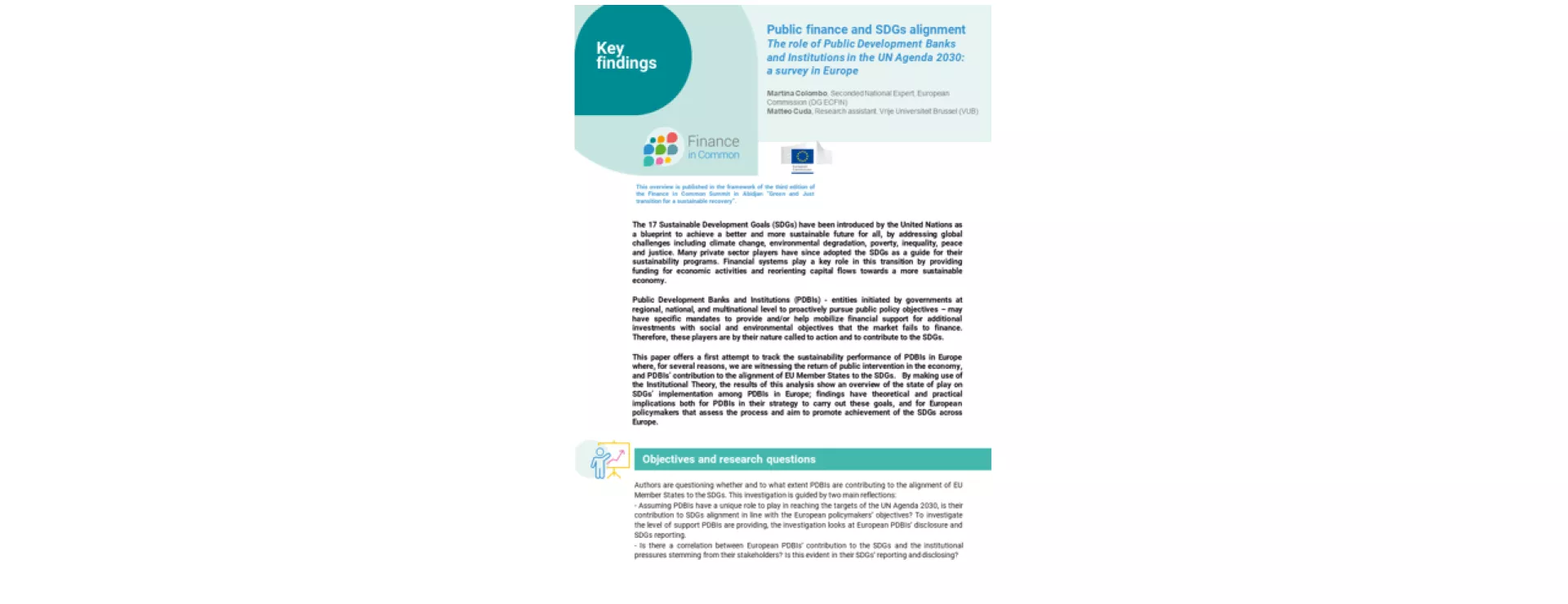Public finance and SDGs alignment - The role of Public Development Banks and Institutions in the UN Agenda 2030


The 17 Sustainable Development Goals (SDGs) have been introduced by the United Nations as a blueprint to achieve a better and more sustainable future for all, by addressing global challenges including climate change, environmental degradation, poverty, inequality, peace and justice. Many private sector players have since adopted the SDGs as a guide for their sustainability programs. Financial systems play a key role in this transition by providing funding for economic activities and reorienting capital flows towards a more sustainable economy.
Public Development Banks and Institutions (PDBIs) - entities initiated by governments at regional, national, and multinational level to proactively pursue public policy objectives – may have specific mandates to provide and/or help mobilize financial support for additional investments with social and environmental objectives that the market fails to finance. Therefore, these players are by their nature called to action and to contribute to the SDGs.
This paper offers a first attempt to track the sustainability performance of PDBIs in Europe where, for several reasons, we are witnessing the return of public intervention in the economy, and PDBIs’ contribution to the alignment of EU Member States to the SDGs. By making use of the Institutional Theory, the results of this analysis show an overview of the state of play on SDGs’ implementation among PDBIs in Europe; findings have theoretical and practical implications both for PDBIs in their strategy to carry out these goals, and for European policymakers that assess the process and aim to promote achievement of the SDGs across Europe.